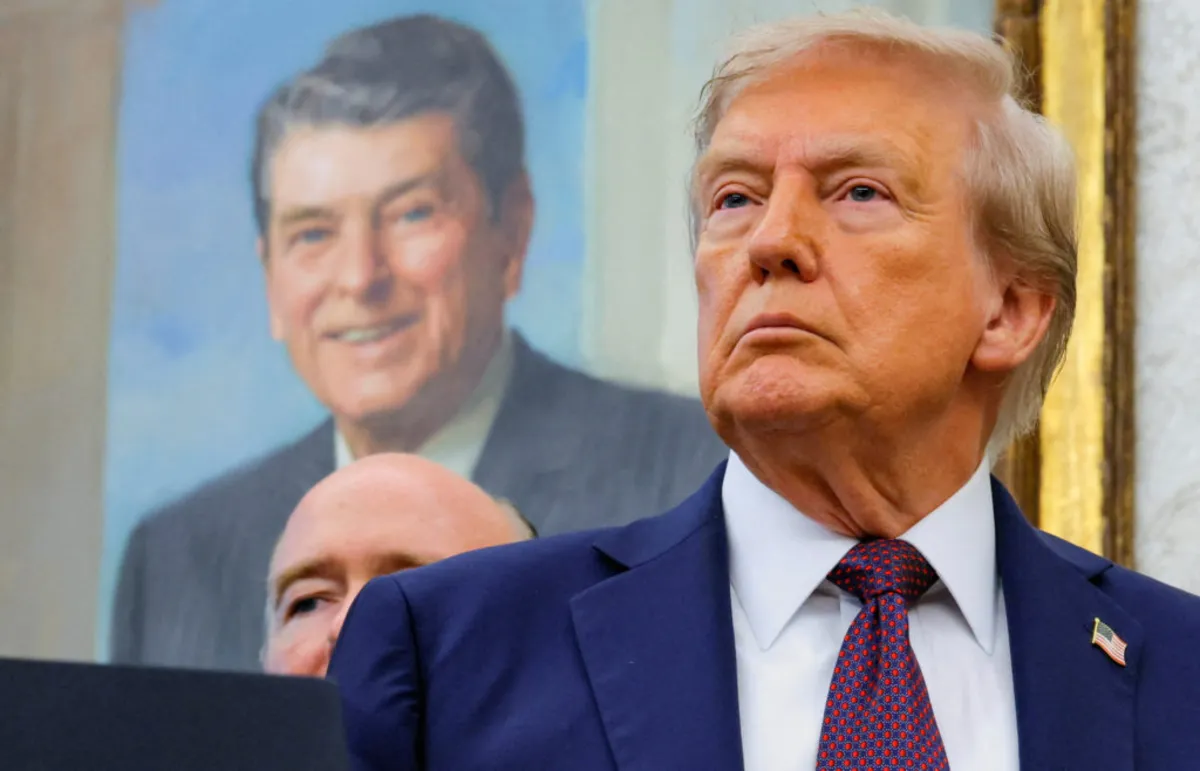
In recent discussions surrounding tariffs and trade policies, an advertisement featuring former President Ronald Reagan has sparked significant debate. The ad's overall message intends to convey Reagan's views on tariffs, suggesting that he opposed them due to their potential to incite trade wars and harm American citizens. However, the Ronald Reagan Presidential Foundation and Institute has criticized the ad for misrepresenting Reagan’s original remarks from his 1987 address. Attempts to clarify this issue with the foundation went unanswered by the time of publication.
When the White House was approached for comment regarding the inaccuracies in the advertisement, spokesperson Kush Desai stated, “Even The Ronald Reagan Presidential Foundation and Institute is calling out Ontario’s misleading and selective editing of President Reagan’s remarks.” This statement highlights the contention between the advertisement's portrayal of Reagan's stance and his actual views on trade policies.
Ontario Premier Doug Ford announced on October 14 that a substantial ad buy worth $75 million was in the works, with plans to air it across major television networks. Following the cancellation of trade talks with Canada by former President Donald Trump on October 24, Ford indicated that the ad would be broadcast during the first two games of the World Series but would pause after that to allow for resumed negotiations.
The advertisement features clips of Reagan discussing tariffs, where he famously states, “When someone says, ‘Let’s impose tariffs on foreign imports,’ it looks like they’re doing the patriotic thing by protecting American products and jobs. And, sometimes for a short while, it works, but only for a short time.” Reagan goes on to express that high tariffs can lead to retaliatory measures from foreign nations, ultimately resulting in trade wars that adversely impact American workers and consumers.
While the ad does include key excerpts from Reagan’s speech, it rearranges certain sentences, which, while not changing their intended meaning, does alter the flow and context. For instance, a critical statement regarding the long-term consequences of trade barriers was delivered earlier in the original address, adding to the complexity of the ad's portrayal.
Notably absent from the ad are essential comments Reagan made regarding specific actions against Japan. He explained that he had recently imposed new duties on certain Japanese imports due to non-compliance with a trade agreement on semiconductors. Reagan’s framing of these actions as unusual and targeted stands in contrast to the broader message against tariffs depicted in the advertisement.
Reagan explicitly stated, “Now, imposing such tariffs or trade barriers and restrictions of any kind are steps that I am loath to take,” further emphasizing that his intention was not to initiate a trade war, but rather to address particular trade discrepancies.
Historically, Reagan's trade policies leaned towards free trade, advocating for international agreements such as the 1988 U.S.-Canada Free Trade Agreement, which later evolved into the North American Free Trade Agreement (NAFTA). His administration also initiated the Uruguay Round, which aimed to reduce global trade barriers and ultimately led to the establishment of the World Trade Organization.
In a 1985 speech, Reagan reinforced his commitment to free trade by stating, “Our trade policy rests firmly on the foundation of free and open markets — free trade.” He acknowledged the need for fairness in trade practices, asserting that he would not tolerate unfair competition that jeopardized American jobs.
The Ronald Reagan Presidential Foundation and Institute's assessment concludes that the advertisement misrepresents Reagan’s position on tariffs. While the ad does capture some of Reagan's sentiments, it fails to include his nuanced stance regarding specific trade issues, particularly with Japan. Ultimately, while the advertisement conveys a general anti-tariff message, it does not fully represent Reagan's overall commitment to free trade, leading to a rating of Mostly False for its claims regarding his views on tariffs.